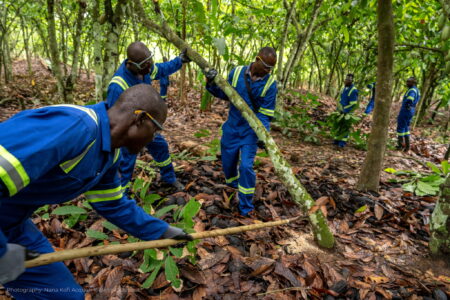Mondelēz International pledges 100% packaging recycling by 2025

Global confectionery and snacks group Mondelēz International today has built on its sustainability policies in committing to making its entire portfolio’s packaging recyclable by 2025.
As the business explained, the move will be in conjunction with its existing production partners as part of an overall strategy for zero-net waste created from its extensive series of products.
The company said it was seeking to help consumers snack at ‘the right time and in the right way,’ through offering ingredients that are sustainably sourced with a positive impact on the supply chain. In addition, it is also aiming to reduce sugar content offered within some of its ranges of confectionery, in light of Public Health England calls for a 20% cut in sugar rates over the next two years to tackle a growing obesity crisis in the UK.
“As a global snacking leader, we’re committing to using sustainably-sourced materials and recyclable packaging as part of our active contribution to reduce packaging waste and establish a circular economy for packaging,” said Rob Hargrove, executive vice president, research, development, quality and Innovation. “Plastic waste and its impact on the planet is a broad, systemic issue that our consumers care deeply about, and which requires a holistic response. Together with partners from across the industry, as well as public and private entities, we can help to develop practical solutions that result in a positive environmental impact.”
The company, which is also continuing its core Cocoa Life sustainability scheme to assist farming communities in Africa, added that its strategy aims to deliver against its long-term vision for zero-net waste packaging by addressing two objectives: making it easier for consumers to recycle packaging and supporting industry coalitions to improve recycling rates. To achieve this, the company is committed to the following:
– All packaging will be made with recyclable material by 2025. The company will provide design guidelines for circular economy to packaging developers, set priorities and identify materials to use or avoid across its packaging range. All paper-based packaging will be sustainably sourced by 2020.
– 65 million kg of packaging material worldwide will be eliminated by 2020. This builds off the company’s success in removing 53.5 million kg of packaging material since 2013 and is consistent with its commitment to use the right amount of material to keep products fresh and safe while minimising the amount of packaging used.
– Recycling information for consumers will be provided by 2025. The company will work to make it easy for consumers to recycle or re-use product packs after use given the vast array of local recycling systems around the world.
– The company will support industry coalitions and public-private partnerships to develop vital waste-management infrastructure to reduce waste and improve real-world recycling rates.
As the company added, through continuously improving packaging design, it has already made substantial progress to reduce the environmental impact of packaging. Most of the company’s packaging is already recycled, recyclable or recycle-ready. Around 75% of its packaging is comprised of glass, paper or metal and around 70% of paper-based packaging is from recycled sources. Hundreds of optimisation programs have reduced packaging in recent years:
In the U.K., Cadbury Heroes tubs were redesigned to use 17% less plastic resulting in 30% fewer trucks to transport them.
In Asia, Middle East and Africa, improvements to secondary packs and shippers for chocolate products saved more than 1 million kg of corrugated paper.
In the U.S., Oreo cookies packaging were made 23 percent thinner, which reduced the need for nearly 1.5 million kg of cartons annually.



